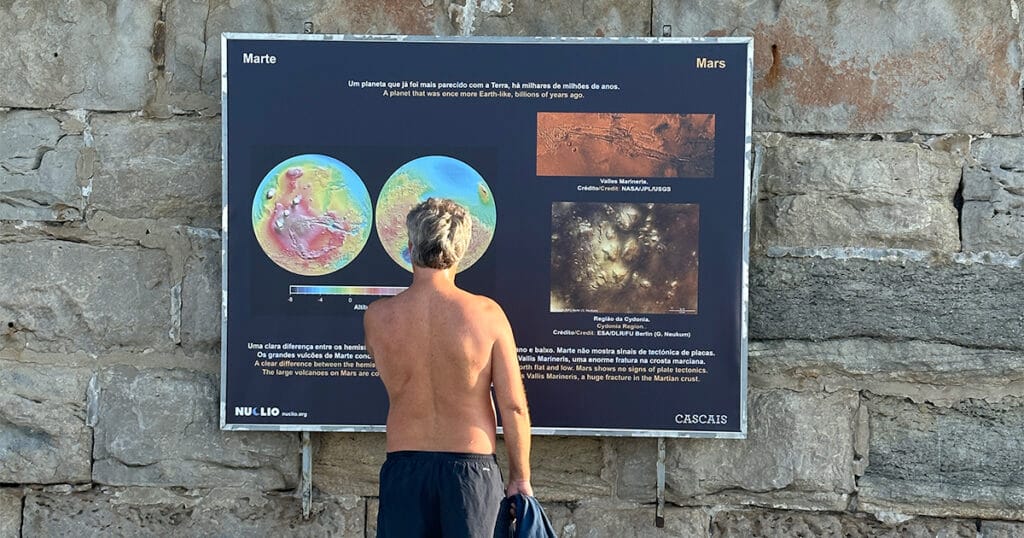There’s a new exhibition to visit at Paredão de Cascais.
GEODIVERSITY IN THE SOLAR SYSTEM features 29 panels created by NUCLIO with the support of the Municipality of Cascais.
Geological diversity includes all non-living elements and processes in nature that make up geological environments. Rocks, soils, rivers and lakes, as well as volcanism, storms and sedimentation are part of this diversity.
On Earth, geodiversity is the foundation of all biodiversity, as it creates the conditions in which life can develop and thrive. In order to raise society’s awareness of the importance of geological heritage and the need to preserve it, UNESCO created the Global Geoparks Network.
In this exhibition, we open a window on geodiversity in the Solar System, with the Earth as the best-studied element. Craters, volcanoes, subsurface oceans are examples of the rich geological diversity that we find on other planets and rocky bodies in our Solar System.
● The exhibition was inaugurated on the 23rd of June, at 10am, with the presence of Joana Balsemão, municipal councillor at Cascais City Council, responsible for the Environment, Decarbonization and Citizenship and Participation policies, as well as members of the Municipality, the Blue Flag Association (that chose Geodiversity for this year’s theme), NUCLIO team and the general public.
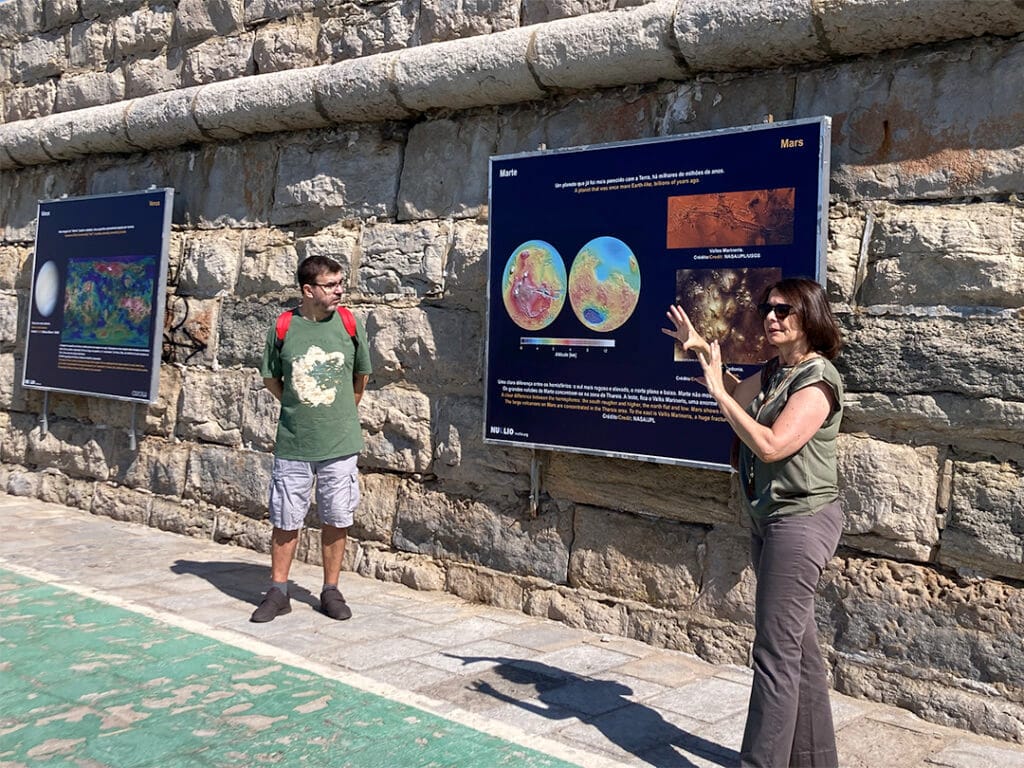
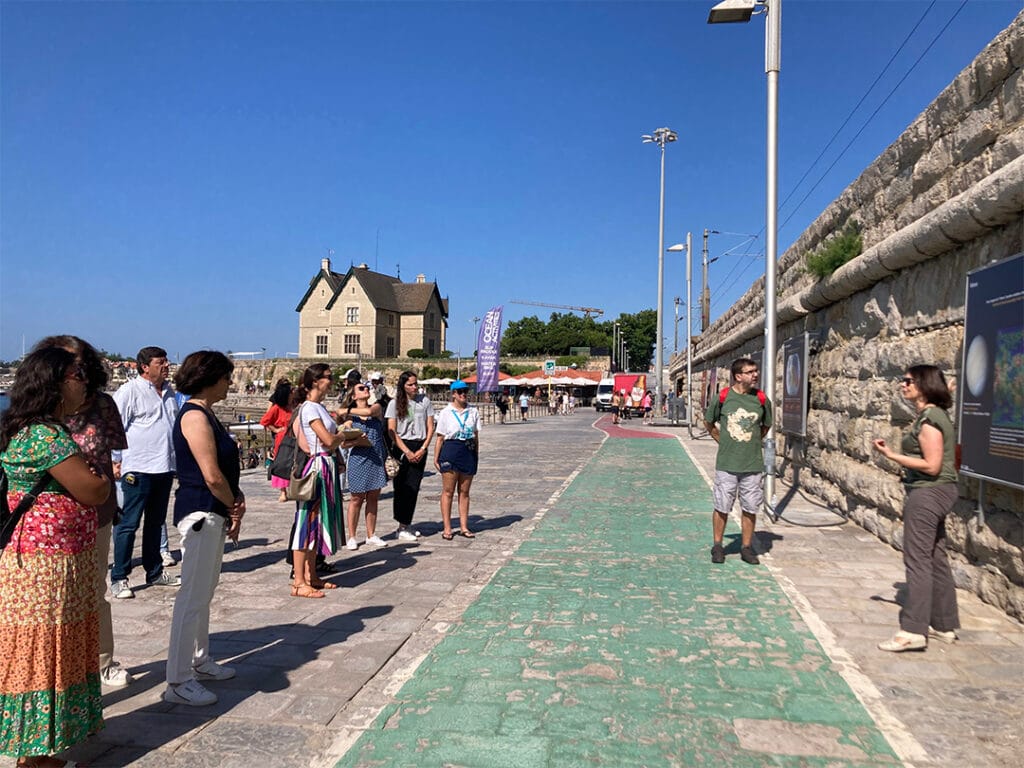
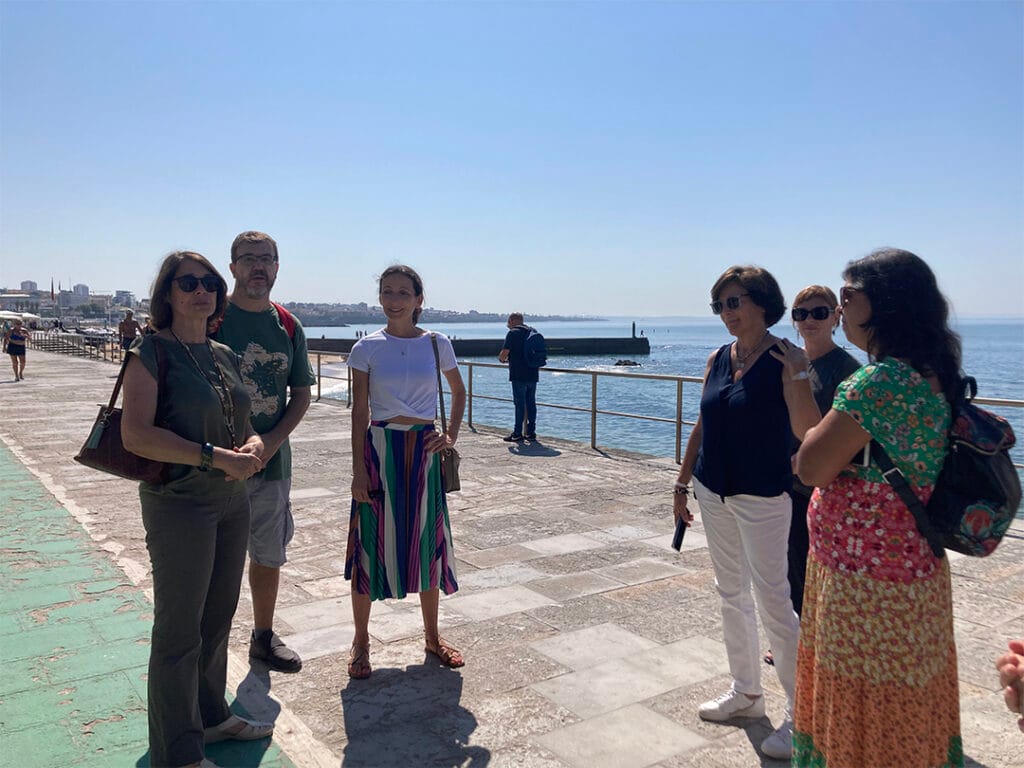
The panels were presented by Maria Luísa Almeida, project coordinator at NUCLIO, and by José Saraiva, our specialist in planetary geology, who guided the development of this exhibition.
★ A Stargazing Night with telescopes was organized on the 24th of June, in partnership with the Municipality of Cascais, next to the Alberto Romano Oceanic Swimming Pool, close to the first panels of the exhibition.
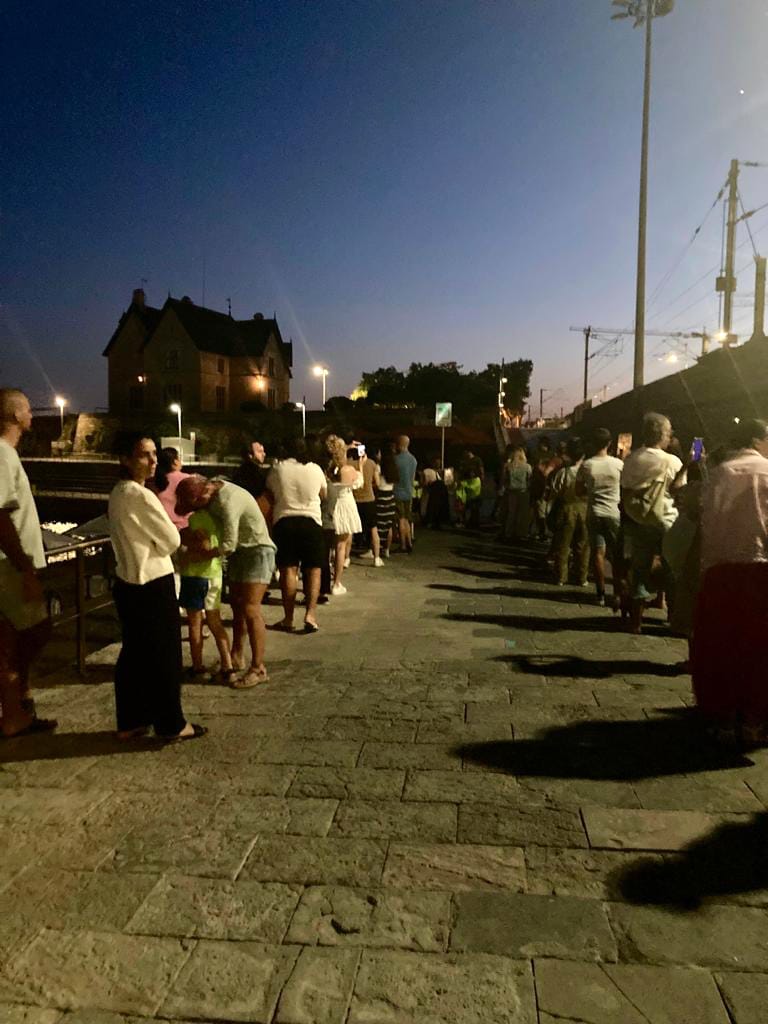
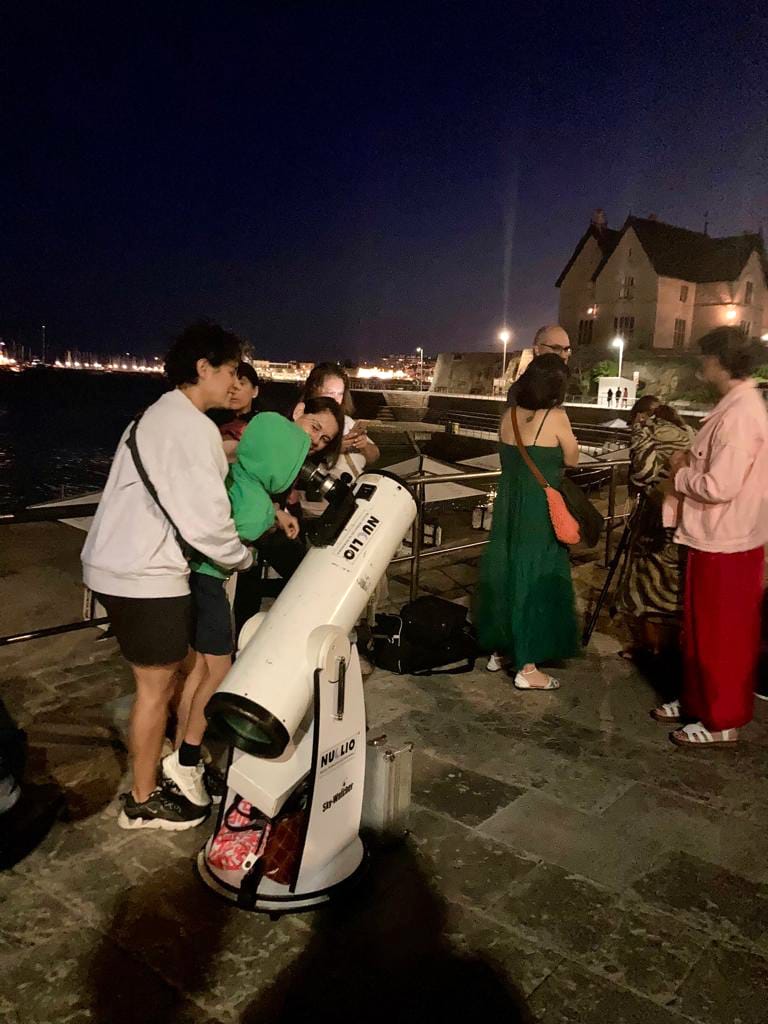
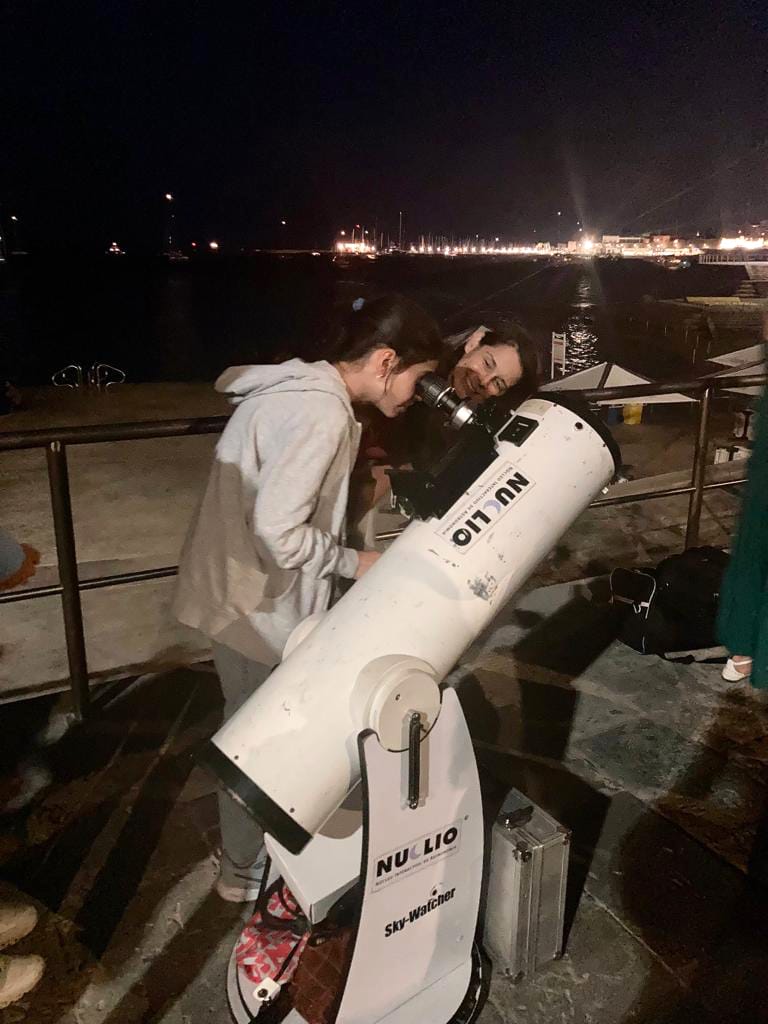
The exhibition will be on view until September 15, 2023.
Don’t miss it!
